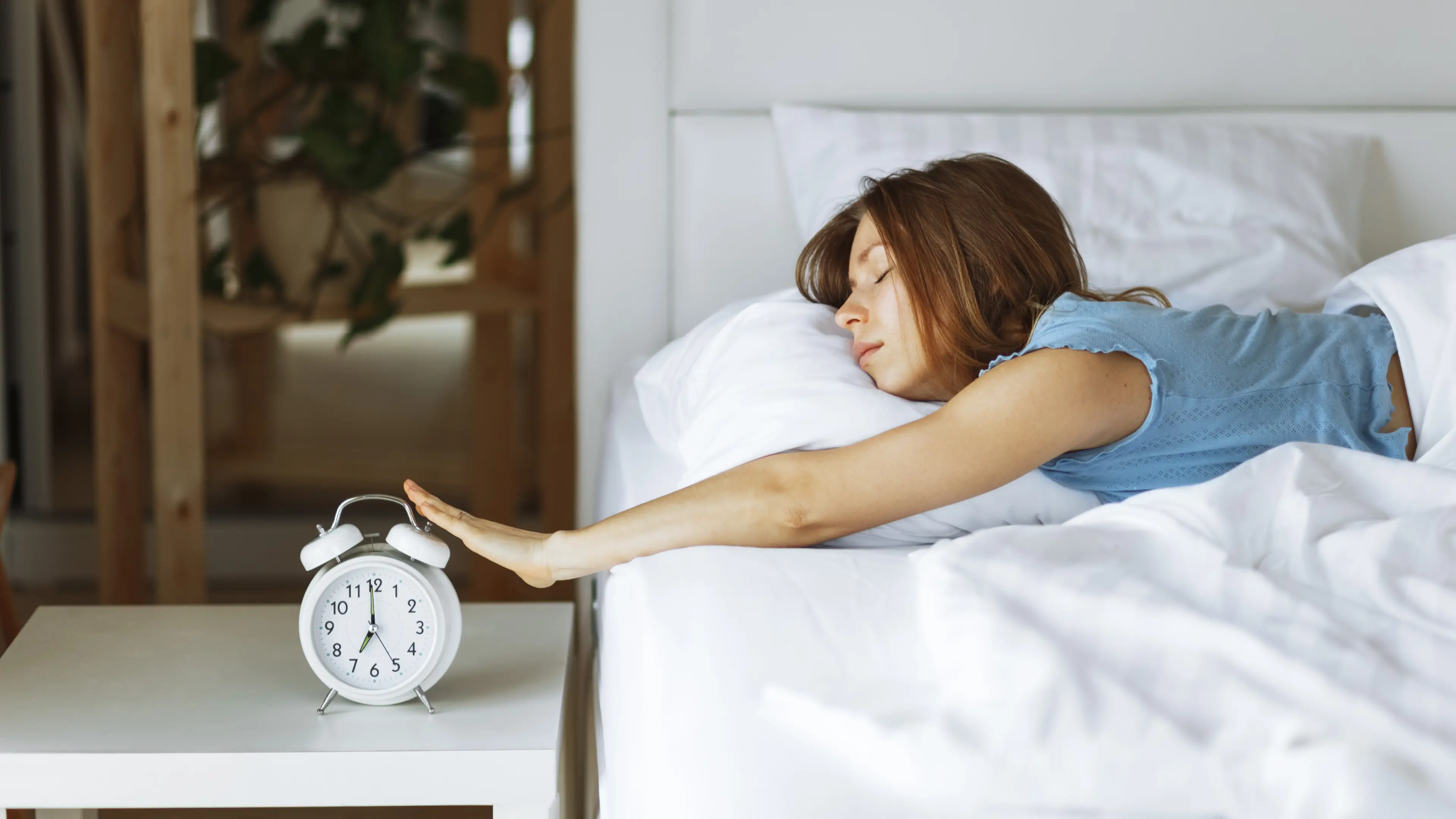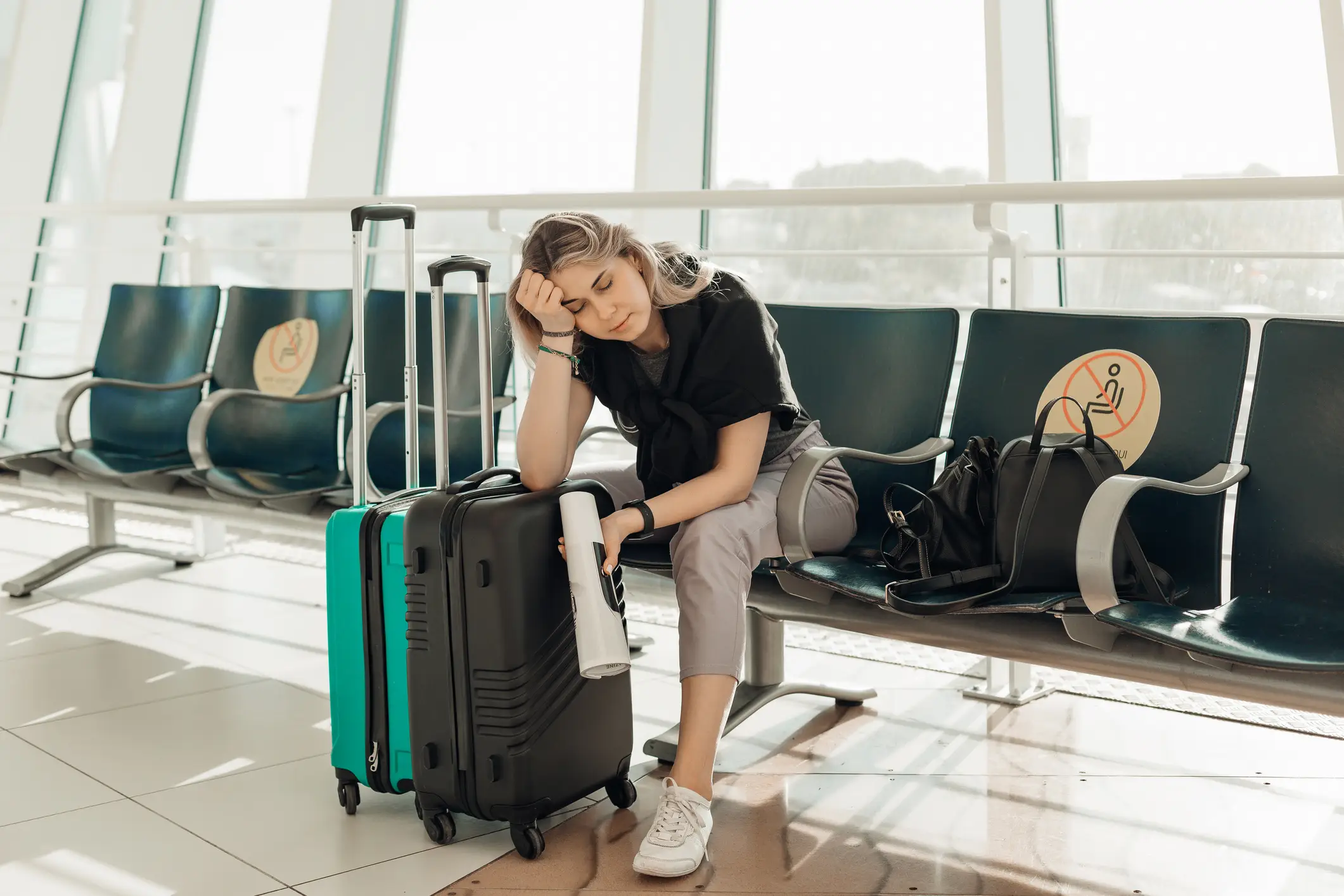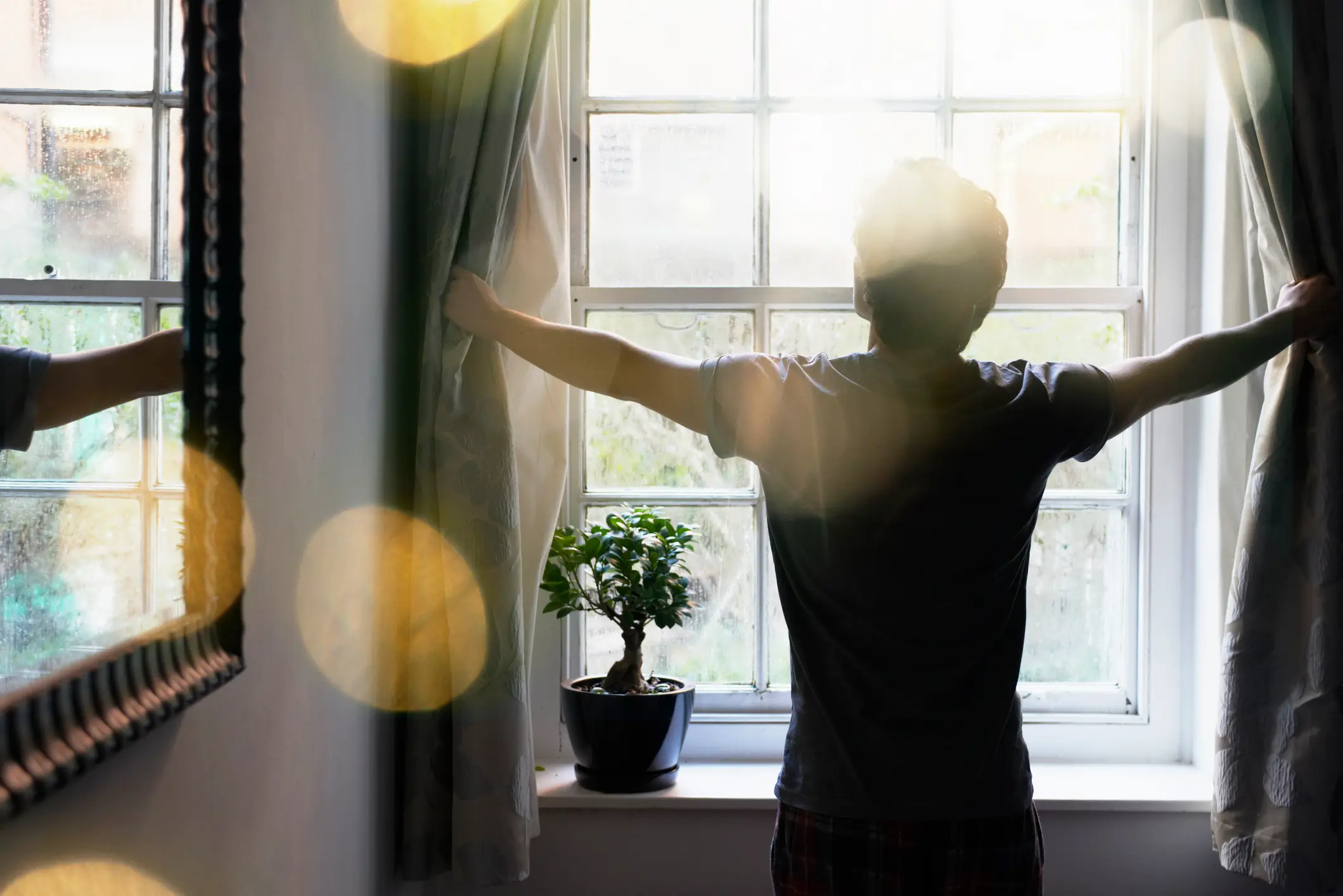
Sleep is something we all love, yet I can guarantee we don't get enough of it.
As a toddler, I used to adamantly refuse naps - but now, I'd take any opportunity. Funny how times change...
Anyway, there's a common sleep condition the majority of us are suffering the effects of, without even realizing it.
So many aspects of our lifestyle can impact the length and quality of our shut-eye. Some are exciting - like taking a vacation on the other side of the world. Of course, long-haul flights and crossing multiple time-zones can leave us feeling jet-lagged.
Advert
But did you know you can feel a less severe form of jet lag, just by, well, living our daily lives?
Blame it on late-night scrolling, packed schedules, and the temptation of a weekend lie-in...

Two NASA researchers, Erin Flynn-Evans and Rachel Jansen, spoke to the Washington Post about how astronauts manage to get quality sleep in space.
They also shared some surprising insights that can help those of us down here on Earth sleep better, too.
Discussing those of us who sleep eight hours a day but still feel sluggish, Rachel went on to explain the condition that leaves us feeling out-of-sync.
"Plenty of people need lots of sleep," she began. "When you sleep in on weekends, that’s called social jet lag; It suggests a misalignment with your desired circadian system," she explained.
Erin explained that social jet lag is 'really common,' adding: "It can make you feel more intense sleep inertia, which is the process of waking up that makes you feel groggy.
"That’s where having a longer night of sleep can make you feel worse, because your body’s playing catch-up."
It's a simple as that; while having a lie-in on the weekend might feel like a treat, it's ultimately doing us more harm than good. Bad news, I know!
What are the effects of social jet lag?

A review of social jet lag and its risks on human health published in the National Library of Medicine highlights why the condition can be dangerous.
Firstly, it found people suffering from it - especially 'night owls' - often don’t sleep well, or enough, on work or school days.
This leads to poorer sleep quality, tiredness, and a worse performance.
What's more, a study using heart rate data showed that people with more social jet lag sleep worse on workdays compared to weekends, while shift workers also report shorter and worse quality sleep.
The review explained how social jet lag might also increase a person's risk for obesity, diabetes ,and heart problems, as well as negatively impact mood and mental health.
What can be done about it?

Fortunately, there are a number of useful steps we can take to combat social jet lag.
Rachel shared her advice: "I like to do a reset where I don’t use an alarm. Try that: See when you naturally wake up, see how much sleep you get when you give yourself permission to sleep as much as your body desires."
Meanwhile, Erin explained how best to get your body clock back on track: "If you want to try to align your circadian rhythm with your sleep opportunity, using light can help.
"Experiment with exposing yourself to bright light in the morning for a week or more - it can help you get more restorative sleep in the long run."
But Erin cautioned that if you're trying to 'keep a regular sleep schedule of seven to eight hours in a cool, dark, quiet environment' and you’re still not feeling rested, then 'that’s the time to seek help from a sleep doctor'.